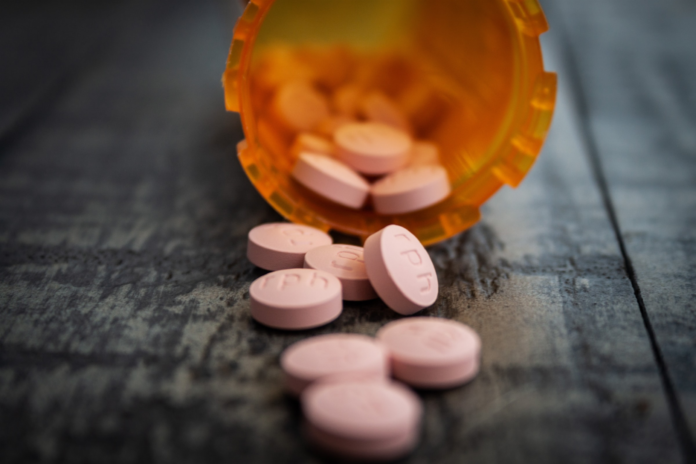New CDC data reveal that more than 93,000 Americans died of drug overdoses last year, up 31 percent from 2019, when 71,000 were reported.
“This is the highest number of overdose deaths ever recorded in a 12-month period, and the largest increase since at least 1999,” National Institute on Drug Abuse Director Nora Volkow told NPR.
The numbers had leveled off between 2017 and 2019. The nearly 100,000 fatalities translates to an average of more than 250 deaths each day, or roughly 11 per hour.
Drug overdoses increased in every state but New Hampshire and South Dakota.
Ten states are predicted to have at least a 40% rise in overdose deaths from the previous 12-month count: Arkansas, California, Kentucky, Louisiana, Nebraska, South Carolina, Tennessee, Vermont, Virginia, and West Virginia. On a percentage basis, Vermont experienced the biggest surge, at over 57%.
According to the National Center for Health Statistics, the rise in deaths was primarily the result of a continued surge in opioid-related overdoses, especially from those laced with fentanyl. About 69,000 of the 93,000 overdose deaths were opioid-related.
One analysis of the numbers included:
“While fentanyl is now linked to 3 out of 5 overdose deaths nationwide, the preliminary statistics suggest deaths from methamphetamine, cocaine, and prescription pain pills also increased in the last year. That likely reflects their contamination with fentanyl, and increasing use of multiple drugs together. As little as 2 milligrams of fentanyl can be a lethal dose; one survey conducted by the Drug Enforcement Administration reported that 26% of counterfeit pain pills contained that dosage or higher.”
A dangerously powerful opioid, fentanyl was developed to treat pain but has frequently been mixed with other drugs when infiltrating the illegal drug supply; fentanyl recently led to 70% of cocaine overdose deaths and half of methamphetamine deaths.
The Washington Post reported Wednesday: “In many cases, users are unaware that their drugs are laced with the powerful painkiller, which can halt breathing even if a minute amount is ingested. In others, users knowingly take multiple drugs.”
Public health officials also suggested that social changes caused by the COVID-19 pandemic and accompanying isolation were a major factor in this uptick.
“This has been an incredibly uncertain and stressful time for many people and we are seeing an increase in drug consumption, difficulty in accessing life-saving treatments for substance use disorders, and a tragic rise in overdose deaths,” Volkow explained.
Lockdowns and social distancing, plus the demands of coping with COVID, meant health care personnel and addicts couldn’t connect as often.
“Understaffed local health departments that had been leading prevention efforts shifted to tracking the coronavirus,” Politico reported. “Social service programs that relied on outreach and in-person visits were shut down, while inpatient treatment centers reduced the number of people they accepted to meet social distancing rules.”
Volkow believes people will now rebuild pre-pandemic social support systems and health care systems can now refocus on providing treatment for opioid abuse disorder.
While COVID killed nearly four times as many Americans as overdoses did in 2020, the virus preys on the elderly, whereas addiction tends to hit the young, making their cumulative years of future life lost staggering.
“A prolonged lockdown combined with a forced economic depression would inflict an immense and wide-ranging toll on public health,” Donald Trump said last spring. “This includes a sharp rise in drug abuse, alcohol abuse, suicide, heart disease, and many other dimensions of physical and mental wellbeing.”
The former president’s prediction, unfortunately, was not wrong.
A.J. Kaufman
A.J. Kaufman is an Alpha News columnist. His work has appeared in the Baltimore Sun, Florida Sun-Sentinel, Indianapolis Star, Israel National News, Orange County Register, St. Cloud Times, Star-Tribune, and across AIM Media Midwest and the Internet. Kaufman previously worked as a school teacher and military historian.

















